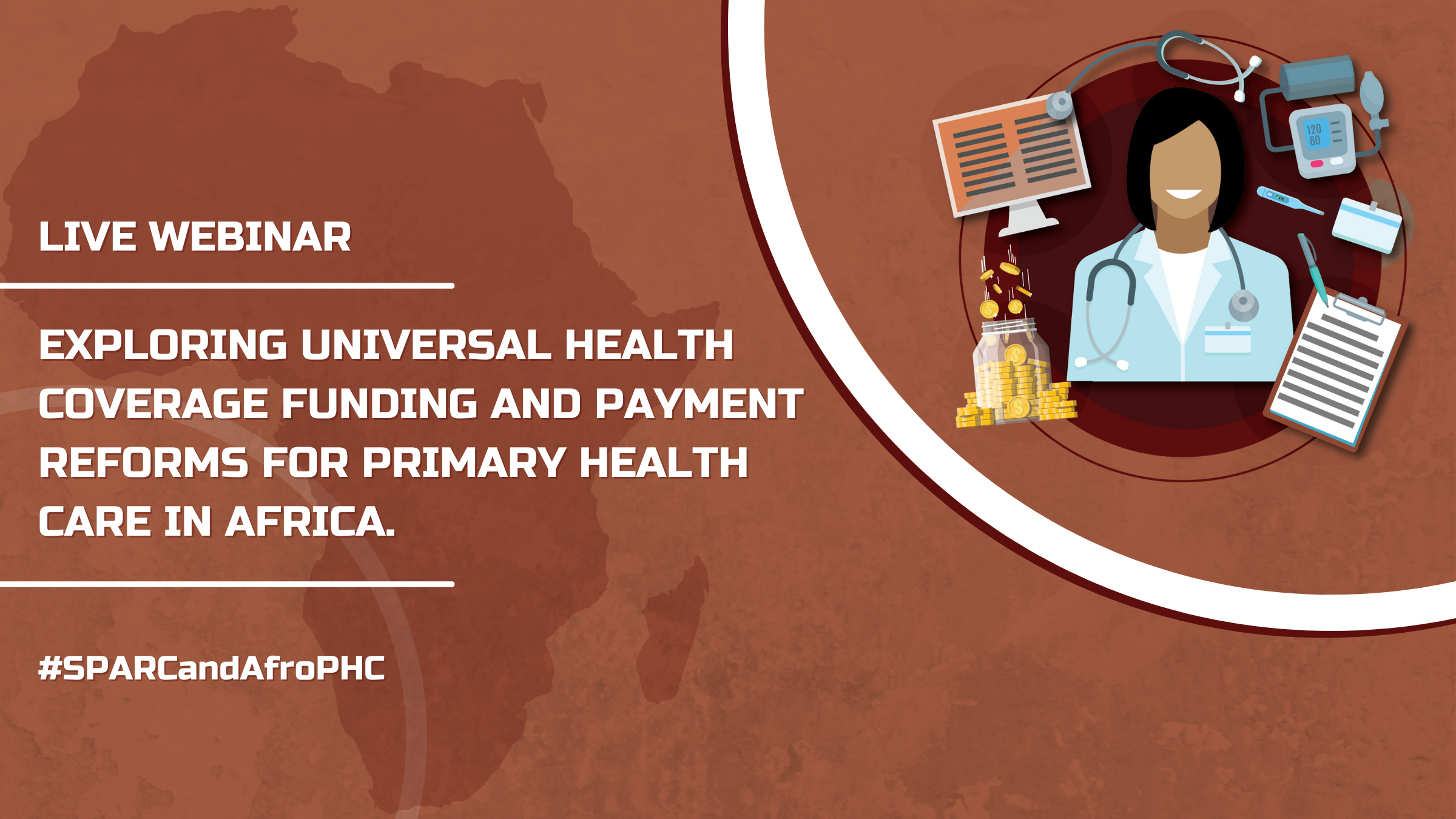Universal Health Coverage (UHC) proposes a world in which everyone accesses the quality healthcare services they need without financial hardship. The vast amount of evidence indicates that primary healthcare service is essential and forms the foundation for a strong health system, offering preventive and basic healthcare intervention. However, this level of service delivery is seemingly least prioritized in terms of funding and purchasing modalities. Some of the reasons for the contrast include the limited financial management capacity, limited or no autonomy and passive (non-strategic) payment mechanisms.
In the light of the preceding, SPARC, in partnership with AfroPHC Forum, organized a webinar themed “Exploring UHC Funding and Payment Reforms for PHC in Africa”, with the objective of discussing issues affecting PHC Financing for UHC, increasing awareness of PHC workers on PHC financing using country experiences, and brainstorming and identifying solutions to challenges facing PHC financing in Africa. The webinar featured a panel discussion with experts from SPARC’s technical consortium and a Q&A session moderated by members of the AfroPHC forum.
The session kicked off with a framing presentation by Dr Nkechi Olalere, Executive Director, SPARC, demonstrating the linkage between strategic health purchasing and PHC with examples from sub-Saharan Africa to show how the delivery and funding of PHC are being improved. The panel discussions, moderated by Prof. Shabir Moosa, President of the African Chapter of World Organization of Family Doctors, engaged SPARC’s Technical Partners: Stella Matutina Umuhoza, a lecturer and researcher at the University of Rwanda School of Public Health (UR/SPH) in the Department of Health Policy, Economics and Management, and Dr Ama Pokuaa Fenny, a Senior Research Fellow with the Institute of Statistical, Social and Economic Research (ISSER) at the University of Ghana. They shared their country experiences with the implementation and funding of PHC systems.
The entire session highlighted lessons that African countries should tap into; the need for PHC facility managers to improve productivity via effective and efficient resource use; creation of evidence and knowledge to guide best-practice implementation of interventions; focus on training of health workers; improving facility environment; effective monitoring and evaluation exercises, and adequate funding to improve accessibility, quality, and efficiency of PHC.
If you missed this webinar, click here for a recording of the session. To access the presentation decks, please use this link.
Click here to read the questions and answers from the session.

